Our Meet Your Ranger series introduces you to the many amazing people who support our Outer Banks national parks every day!
Please tell us a little bit about yourself.
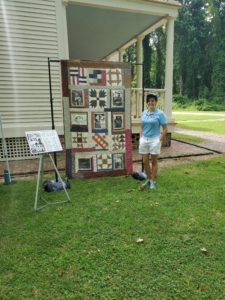 Hometown: Arlington, Texas.
Hometown: Arlington, Texas.
Program of study: I am currently working on my master’s in public history at Texas State University. While in school, I am working as a substitute teacher in Hays Consolidated Independent School District where I primarily work with elementary special education classrooms.
Position in our Outer Banks national parks: Latino Heritage Internship Program (LHIP) Intern.
Where you can be found: I am working at Fort Raleigh National Historic Site until July 31.
Other national parks you have worked at: None.
Currently listening to: Music is a constant in my life. Whether I’m cooking, driving, taking a shower or sewing you can bet I will always have music accompanying me. I tend to give people musical whiplash as my favorite playlist includes artists such as The Beatles, Kanye West, Josh Groban, Mystery Skulls and Zac Brown Band, among dozens of others, and will frequently jump between genres that have no connections.
What do you like to do in your free time?
In my free time I enjoy exploring the outdoors, baking and sewing. I particularly like creating humorous cosplays and historical costumes, which include individuals such as Lord Farquaad from “Shrek” and Queen Katherine of Aragon, Henry VIII’s first wife.
What do you like most about the Outer Banks?
As someone from a highly populated metroplex, it is nice spending the summer in a particularly less crowded area. The history and nature of the area is refreshing compared to the concrete jungle I call home.
How did you end up in your current position with the National Park Service?
As a graduate student in public history, I am required to complete an internship in the field of my study. I was informed of the opportunity to apply with LHIP through an email from an instructor, and once I saw that they were placing interns in the National Park Service, I immediately jumped on the opportunity to apply. Initially I was looking at being placed at a park in Alaska or Nebraska, but my program supervisors were insistent on me interviewing with Fort Raleigh National Historic Site. After speaking with Ranger Josh, I realized that Fort Raleigh National Historic Site is exactly where I would like to be this summer and as soon as he gave me an offer to work for the park, I immediately accepted.
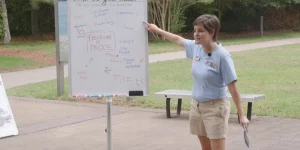 What does a typical workday or work week look like for you?
What does a typical workday or work week look like for you?
Like the federal employees and volunteers, I work a full schedule at Fort Raleigh National Historic Site, which involves giving programs, interacting with visitors and maintenance of site grounds and facilities. As an intern it is also my job to create two educational wayside signs about the Roanoke Island Freedmen’s Colony, so when I am not busy with programs or visitors, I am researching and designing the newest interpretive features for the park.
What do you enjoy most about working at Fort Raleigh National Historic Site?
The rangers and volunteers here are the most kindhearted, genuine people I have ever met in my life. Since day one they have taken me in as one of their own and have given me numerous opportunities to contribute to the park. I feel like my opinion and input is valued, and know that when I leave, I will have left a positive impact on the park that the staff can continue to build off of for future seasons.
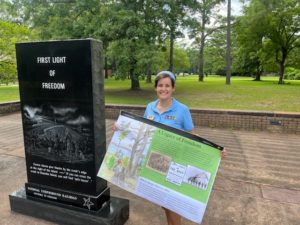
What is a favorite memory you have from your time working in the Outer Banks?
Every day something new happens, which is what makes the job so fun. I really enjoy talking with kids about their vacation experiences or thought process through the Junior Ranger program. I have heard a wide variety of stories (some humorously fabricated) from little ones who are happy to be exploring their nation’s natural and historic places.
Why are our Outer Banks national parks important?
The national parks of the Outer Banks are important because they preserve the history, heritage and ecosystems that make the area what it is today. Without these parks, the land would likely fall victim to overdevelopment which would lead to the endangerment of our cultural resources and fragile ecosystems.
Is there anything else you would like people to know about you or about our Outer Banks national parks?
I encourage all who read this to continue exploring our natural and historical parks, particularly the lesser-known sites. The National Park Service preserves all history and without visitors to share those stories with, they risk being forgotten. The next time you go to a museum or national park, explore the exhibit you are unfamiliar with or attend a program you have never heard of. The only way you can learn something new is if you allow yourself to experience the unknown.
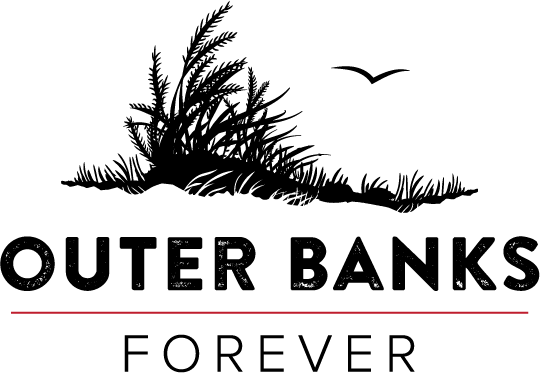
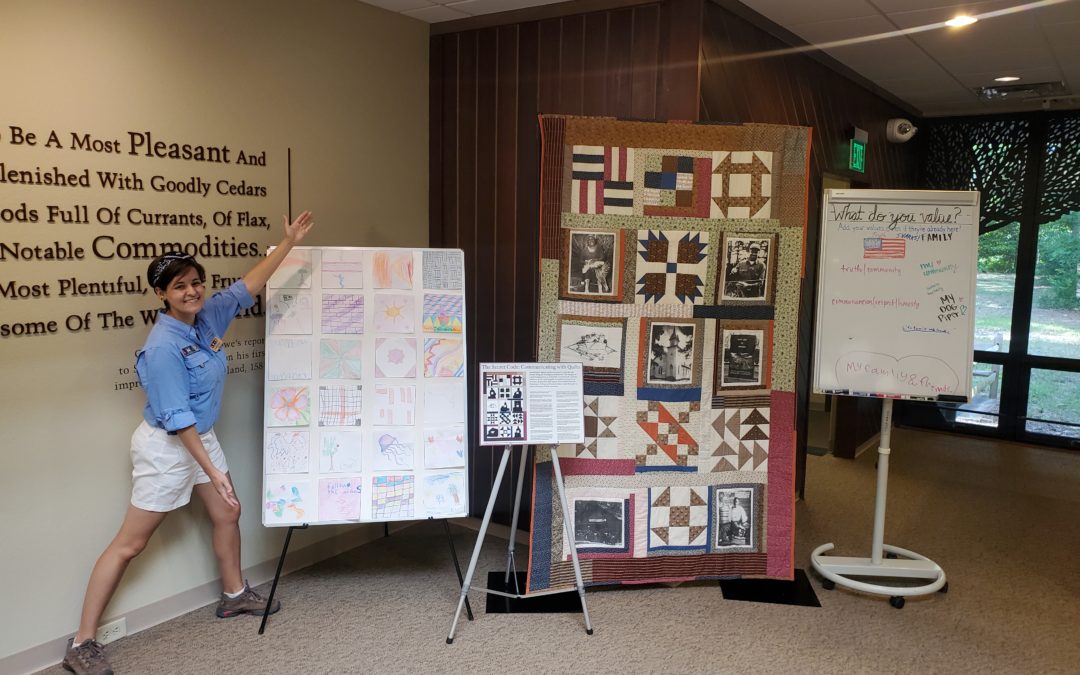
What a great narrative